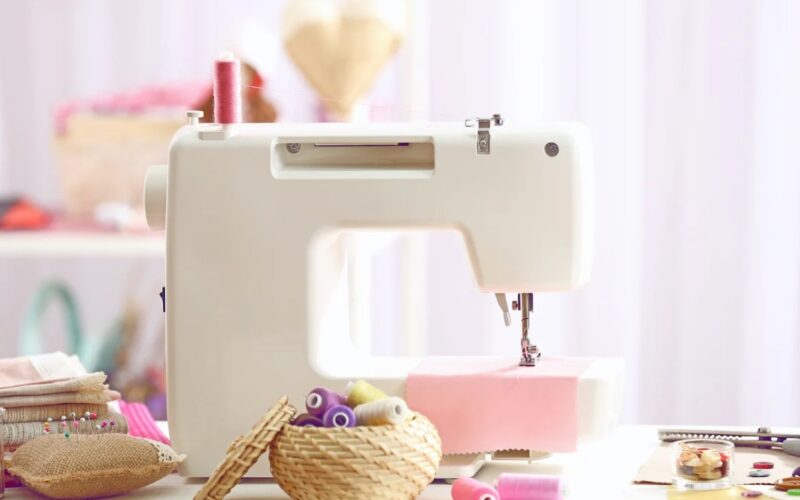Sewing heavy fabrics requires the right tools for the job. Not all sewing machines are created equal when it comes to handling thick materials like denim, canvas, or leather. The best sewing machines for heavy fabrics feature powerful motors, sturdy construction, and specialized features designed to tackle tough materials with ease.
Choosing the ideal machine for heavy-duty sewing projects depends on several factors. Motor strength is crucial, as it determines the machine’s ability to punch through multiple layers of fabric. A metal frame provides stability and durability, while adjustable presser foot pressure allows for better control when working with varying thicknesses.
Many top-rated sewing machines for sale have features specifically tailored for heavy fabrics. These may include walking feet for even feed, specialized needles for thick materials, and extended stitch length options. Some models also boast high-speed capabilities, allowing for the efficient completion of large projects.
Key Takeaways
- Powerful motors and metal frames are essential for heavy-duty sewing
- Specialized features like adjustable presser foot pressure enhance performance
- User-friendly add-ons improve the overall sewing experience for thick materials
Selecting the Right Sewing Machine for Heavy Fabrics
Choosing a sewing machine for heavy fabrics requires careful consideration of specific features and capabilities. The right machine will have a powerful motor, sturdy construction, and specialized functions to handle thick materials effectively.
Understanding Heavy-Duty Sewing Machine Features
Heavy-duty sewing machines are built with robust components to tackle demanding projects. A metal frame provides stability, while a stainless steel bedplate ensures smooth fabric feeding. Powerful motors, typically 1.0 amp or higher, deliver the necessary force to penetrate thick layers.
These machines often boast high stitching speeds, ranging from 800 to 1500 stitches per minute. Adjustable stitch length and width settings allow for customization based on fabric thickness. Many models include an automatic needle threader, saving time and reducing eye strain.
Built-in stitches vary by model, but most offer essential utility and decorative options. Some machines feature adjustable presser foot pressure, crucial for maintaining consistent stitches on heavy fabrics.
Factors to Consider in Heavy Fabric Sewing Machines
When selecting a machine, prioritize motor power and sturdy construction. Look for models with at least 800 stitches per minute capability. Adjustable stitch length is crucial, with a maximum of 6mm ideal for heavy fabrics.
Consider the types of presser feet included, as specialized feet can greatly improve sewing performance on thick materials. Speed control options allow for precise stitching in challenging areas.
Ease of use features like automatic needle threading and clear stitch selection improve efficiency. Evaluate the machine’s maintenance requirements and availability of replacement parts to ensure long-term usability.
Price ranges vary widely, so balance your budget with the features most important for your specific sewing needs.
Advanced Features and User-Friendly Add-ons
Modern sewing machines offer specialized features to handle heavy fabrics with ease. These innovations enhance both functionality and comfort for sewists tackling demanding projects.
Adapting to Thick Fabrics With Specialized Attachments
Heavy-duty machines often come equipped with a walking foot attachment. This device helps feed multiple layers of thick fabric evenly through the machine, preventing bunching and misalignment.
Some models feature an extra-high presser foot lift, allowing bulky materials to fit underneath easily. This is particularly useful when working with denim, leather, or multiple layers of canvas.
Robust needle systems designed for heavy fabrics can penetrate tough materials without bending or breaking. Many machines offer adjustable needle positions to accommodate different fabric thicknesses.
Enhancements for Sewing Comfort and Precision
LED lighting systems illuminate the workspace, reducing eye strain and improving visibility when working with dark fabrics. This feature is especially helpful during intricate stitching or free-motion quilting.
Extension tables provide additional support for large projects, keeping heavy fabrics flat and manageable. This add-on is invaluable for quilting or sewing bulky items like coats.
Computerized models often include programmable stitch patterns and automatic tension adjustment. These features ensure consistent results across various fabric weights and textures.
Speed control allows users to slow down for precise work on thick seams or accelerate up to 1100 stitches per minute for efficiency on straightaways.
Conclusion
Selecting the right sewing machine for heavy fabrics is crucial for successful projects. These machines excel at handling thick materials like denim, leather, and canvas.
Key features to look for include metal frames, adjustable stitch settings, and high needle penetration power. With the right heavy-duty sewing machine, crafters can tackle challenging fabrics with confidence and precision.
